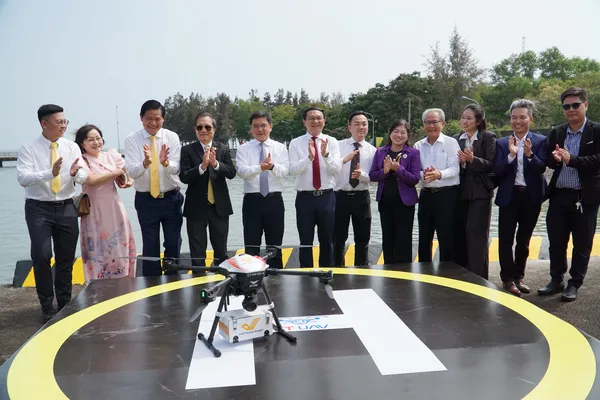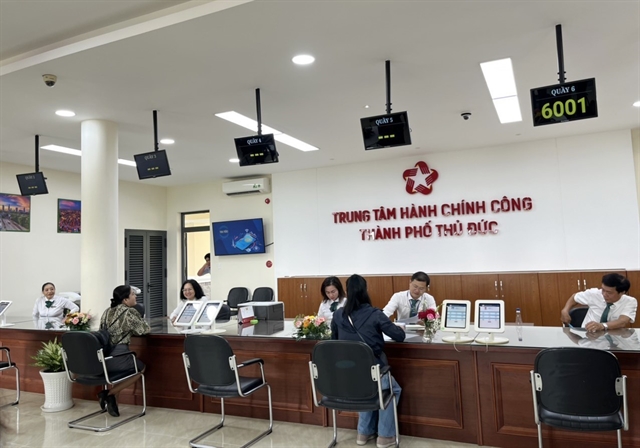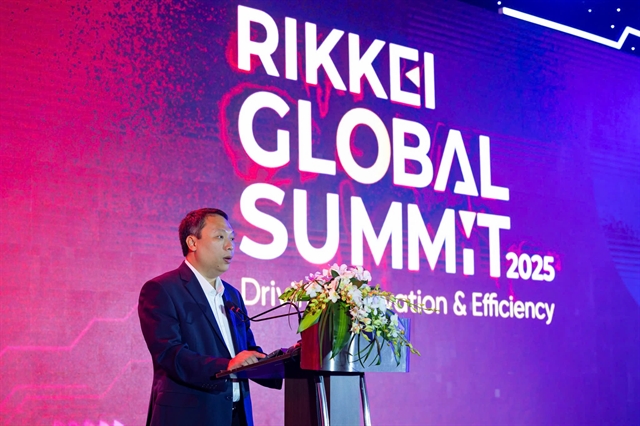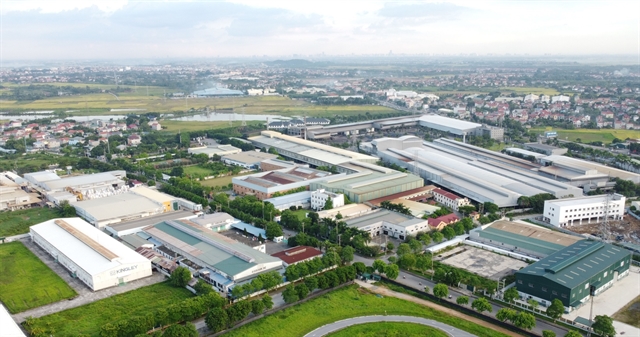 Economy
Economy


|
| Nguyễn Huy Dũng, Member of the Central Steering Committee on Science, Technology, Innovation and Digital Transformation delivered a speech at the event. Photo vietnamplus.vn |
HÀ NỘI — Việt Nam’s software outsourcing industry must rapidly transform its capabilities and move up the global value chain as the world enters the “second half” of the artificial intelligence (AI) era, according to Nguyễn Huy Dũng, Member of the Central Steering Committee on Science, Technology, Innovation and Digital Transformation.
Speaking at the Rikkei Global Summit 2025 in Hà Nội on Friday, Dũng said technology firms need to continuously upskill their workforce to adapt to the accelerating AI revolution, while placing employee growth and happiness at the centre of their long-term strategy.
He noted that the global outsourcing sector is expected to exceed US$1.1 trillion in 2025, demonstrating its continued importance to the digital economy. However, he warned that long-standing market dynamics are shifting. China is no longer the world’s low-cost manufacturing hub, Japan is struggling after missing the software wave despite its hardware strengths, and India has undergone significant transformation compared to a decade or two ago.
“The competitive landscape has changed at lightning speed,” he said. “Việt Nam’s outsourcing industry must upgrade itself or risk being left behind.”
Dũng argued that the sector is entering the “second half” of the AI era. While the first phase was a race to develop AI systems to solve increasingly complex problems, the second focuses on selecting the right problems and measuring AI’s true value. This, he said, requires a fundamental mindset shift—from purely executing engineering tasks to becoming value creators and product builders.
The rise of AI is forcing software engineers to move beyond the traditional role of “code writers for hire” and become co-creators alongside clients. Dũng recalled an anecdote shared at the summit in which a CEO of a Fortune 500 company asked his outsourcing partner: “If AI agents can automatically do this work, why do we need you?”
“This is no longer a hypothetical question,” Dũng said, warning that new AI agents are dismantling three long-held assumptions of the outsourcing sector: the scarcity of talent, the geographic cost advantage, and the irreplaceability of human intelligence. “These shifts mean companies must redefine their value in the service supply chain,” he said.
Dũng broke down software development into three layers: the Concept layer, involving business understanding and problem definition; the Logic layer, involving system design; and the Physical layer, where code is written. Vietnamese engineers, he said, have long been concentrated in the Physical layer. However, advancements in AI and no-code/low-code platforms are rapidly automating this layer, threatening the traditional core work of thousands of developers.
“As value moves upward, the need increases for professionals in Information Systems who understand business requirements and can design holistic solutions,” he said.
At the same time, global competition is intensifying. Dũng pointed to Japan’s recent strategic cooperation with India as a warning sign, noting that Indian engineers—now considered stronger in AI—are willing to accept salaries 20–30 per cent lower than their Vietnamese counterparts. “The next decade will no longer be a race to the lowest cost, but a fierce competition for value,” he said. “Việt Nam has no alternative but to climb the value chain—from the Physical layer to the Concept layer.”
According to Dũng, the most significant innovation needed is in business models. Companies must transition from transactional outsourcing to transformation partnerships. In transactional models, vendors simply code according to the client’s design and are paid by project or man-hours. This “low-level playing field,” he said, is being eroded by AI.
In contrast, transformation models require technology firms to participate from the start, helping define problems and develop comprehensive solutions. “In this model, companies sell expertise and outcomes, not just labour,” Dũng said. He cited a recent survey showing that 81 per cent of businesses want their outsourcing partners to act as strategic collaborators rather than traditional service providers.
“Clients no longer buy service-level agreements—they buy business results,” he said. “In the AI era, the question is not how to complete a task efficiently, but how to eliminate the task entirely through automation.”
He added: “The core competency of future engineers is the ability to combine human empathy with machine power to find breakthrough solutions, not just improve old methods.”
Dũng said Việt Nam’s strength lies in being small, agile and flexible. Instead of building large, cumbersome teams, he said the industry needs “elite technology task forces” that are highly skilled, resilient and capable of adapting quickly.
To develop such teams, companies must adopt sustainable talent strategies. This is not simply a race to hire top performers, but a commitment to deep investment in people. He stressed that global workforces, including in Vietnam, will need to continuously upgrade skills to adapt to AI, and companies must prioritise employee well-being. “Businesses must place the development and happiness of their employees at the centre,” he said.
Dũng highlighted the importance of training missions such as Rikkeisoft’s Rikkei Education programme. He said the company’s vision of “helping farmers learn to code,” which aims to democratise programming knowledge beyond the IT sector, has become increasingly meaningful. “When technology empowers domain experts to create their own solutions, that is the pinnacle of efficiency,” he said.
The summit also underscored a clear message: Việt Nam’s software outsourcing industry can only move forward by working alongside customers as co-creators rather than simply executing orders.
This mindset was reflected in Rikkeisoft’s new strategic direction, announced during the event. Chairman Tạ Sơn Tùng said RGS2025 marked not only a milestone in the company’s 13-year journey but also the start of a new phase with a clearer global vision.
In the next stage, the company will focus on four strategic priorities: accelerating investment in AI as a core growth driver; expanding talent development through university partnerships and the “three-house” (government–academia–business) model; entering global markets by shifting from outsourcing to end-to-end consulting and technology solutions; and preparing for an initial public offering (IPO) with the ambition to become Việt Nam’s next tech unicorn.
“We aim for 50 per cent annual growth, with the aspiration to take Vietnamese intelligence to the world,” Tùng said.
During the summit, Rikkeisoft signed several memoranda of understanding with strategic partners to support market expansion, technological talent development and international cooperation. These agreements, the company said, will help bring Vietnamese technology closer to global markets.
The event also featured a series of conferences and in-depth forums on AI applications in business, digital transformation and the development of advanced technology talent. International guests toured Rikkeisoft’s technology ecosystem, visited its headquarters and engaged with students at partner universities. — VNS




